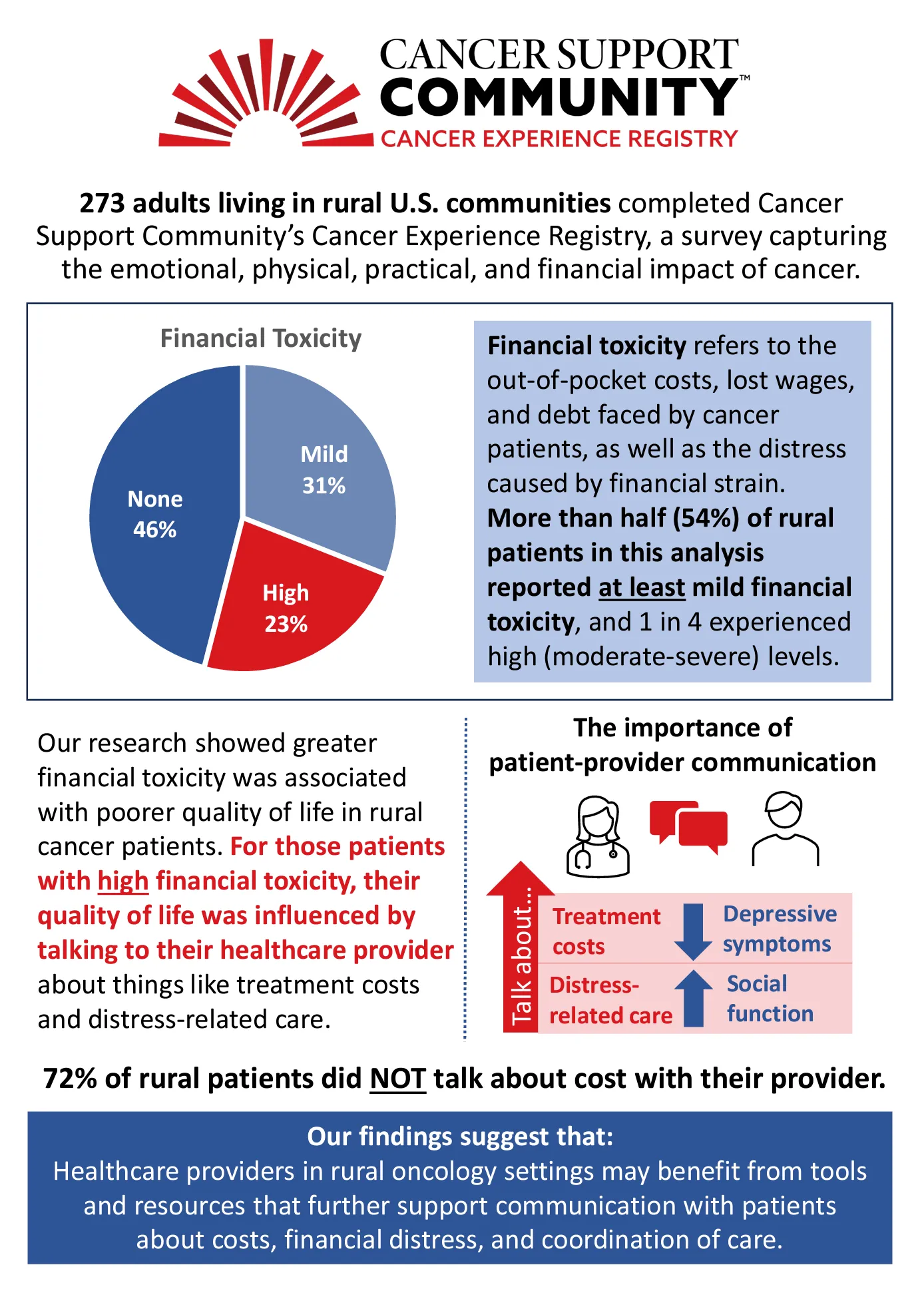
Publications & Presentations
The Cancer Support Community is a leader in research on the patient, survivor, and caregiver experience. Our work appears in posters and presentations shared at professional conferences, published articles in preeminent peer-reviewed journals, educational materials for patients and caregivers, and comprehensive research reports to help inform cancer care and patient advocacy.

Use the search filters below to discover our research findings on diverse topics related to patient and caregiver quality of life, including:
- Psychosocial well-being and symptom management
- Patient-provider communication
- Treatment options
- Patient advocacy
- Financial toxicity and other barriers to health equity
- Experiences and perspectives on precision medicine
Cancer SupportSource-Spanish (CSS-Spanish) is a psychometrically robust measure of psychosocial distress among Hispanic and Latino individuals with cancer CSS-Spanish was created using gold-standard methods for translation and an iterative processof testing that included feedback from Spanish-speaking Hispanic and Latino individuals living with cancer and a project advisory board
The COVID-19 pandemic presents a unique, amplified threat to those living with a cancer diagnosis, but personal factors may play a role in how this affects well-being. This cross-sectional study (1) describes the impacts of COVID-19 on cancer patients’ lives, and (2) explores the extent to which specific impacts of COVID-19 and noted protective factors, hope and resilience, predict two crucial patient-reported outcomes, depression and anxiety, after controlling for relevant sociodemographic and clinical factors.
This study aims to characterize patient experiences with biomarker testing, including history of biomarker testing, related communication and education, self-perceived familiarity and informational needs.
COVID-19 continues to have long-lasting effects on healthcare experiences and health-related quality of life, especially for individuals who are more reliant on frequent medical services, such as those living with a cancer diagnosis.
Compared to CRC patients diagnosed at an older age, young adult colorectal cancer patients tend to present with advanced tumors, are more likely to receive more aggressive treatments, live with disease and treatment-associated symptoms for longer periods of time, and face the stress of experiencing a life-threatening illness and the financial burden of treatment at a young age.
The COVID-19 pandemic continues to have substantial, long-lasting impact on individuals, especially those who are already at-risk due to existing physical and mental conditions.
As many as one-quarter of people living with cancer are also living with depression, and about 20 percent with anxiety. Even when patients are screened for distress and referred to care, many patients do not access this treatment or support.
As many as one-quarter of people living with cancer are also living with depression, and about 20 percent with anxiety. Even when patients are screened for distress and referred to care, many patients do not access this treatment or support.
Older adults living with metastatic cancer experience diverse psychosocial concerns. While symptom burden had expected associations with anxiety and depression risk, concerns about body and healthy lifestyle, relationships and intimacy, and health care team communication were notable significant predictors of anxiety and depression risk, respectively.
This report is an exploration of the continued need for caregiver support and research, and aims to understand the emotional, physical, practical, and financial impact of cancer and identify unmet needs among patients, survivors, and caregivers.
